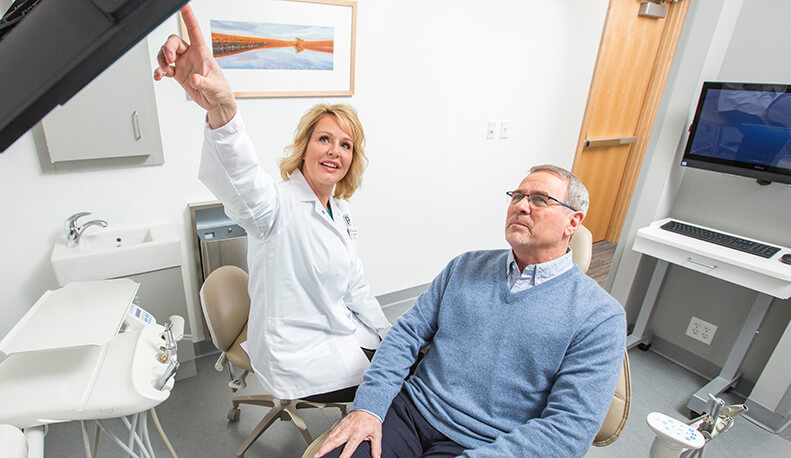
Top 5 Dental Questions Patients Ask
September 04, 20191. Do I really need to floss?
We know we sound like broken records here, but yes! Brushing and flossing mechanically removes food and bacteria from the tooth surfaces, and is the best way to prevent cavities and gum disease. Brushing, however, cannot physically get in between your teeth. When bacteria and food are allowed to sit next to your teeth for a long period of time, the plaque will begin to harden from the minerals naturally present in your saliva, and a tough deposit will start to form that only a dental hygienist can remove. The process is basically the same as soap scum forming in your bathroom. Gross, huh? By flossing daily, you can eliminate the bacteria before it has a chance to harden, which will keep your teeth and gums healthy and happy.
2. Why is fluoride so great for my teeth?
In order to understand why fluoride is so great, it’s important to understand how cavities form. They don’t just appear overnight, but are the end result of a process called caries. What happens is this; you eat carbohydrates, the bacteria naturally present in your mouth eats the carbohydrates, and then the secret acid. It is the acid itself that starts to slowly dissolve your tooth structure. At first, the tooth will just appear to be demineralized. Over time, the tooth structure will weaken. The point where it’s formed a hole, or cavity, is when a dentist needs to intervene and place a filling.
However, fluoride can help prevent, and even reverse, this process! Fluoride ions actually can swap places with the calcium ions in your teeth. Fluoride bonded to tooth structure is actually less soluble in acid than calcium is. Therefore, it takes more bacteria and more time and more sugar to create a cavity. Voila!
3. When do my children need to start coming to the dentist?
We like to see patients by the time they’re a year old, or whenever their first tooth appears, whichever comes first! Why? First of all, it will get your child used to coming to the dentist, so it doesn’t seem such a scary and intimidating place. Second of all, if there is something going on with the child’s teeth or oral cavity, it’s best to catch it as early as possible. Also, we can start applying fluoride, even if the child only has one tooth so far, it will help make it nice and strong! Finally, you can discuss with your dentist any questions you have about your child’s teeth and mouth, including teething, thumb sucking habits, pacifiers, et cetera. The first appointment is generally a fun and easy experience, and typically occurs on your and the dentist’s lap!
4. My tooth doesn’t hurt. Can I wait to fix it until it does?
Pain is the way your body tells you that something is wrong. However, it isn’t the only diagnostic tool dentists have to measure if your teeth and gums are healthy. That’s why they take x-rays, probe your gums, and perform a thorough evaluation every time you come in for a routine cleaning. If your dentist recommends treatment, it may be tempting to put it off if the tooth isn’t bothering you. We get it, few people actually enjoy being at the dentist. That said, the earlier you fix an existing issue, the more conservative treatment can be. Cavities only grow with time, and what started out as a simple filling can progress to root canal treatments and extractions. Even worse, teeth with large cavities can cause infections in your lips, cheeks, and throat, which may require antibiotics, hospitalization, or even death.
5. Is an electric toothbrush worth the cost?
Research has shown that if someone uses a perfect technique and brushes for two minutes with a manual toothbrush, they will remove as much food, debris, and bacteria as an electric toothbrush. This is great news for the thrifty and dedicated! That said, we’re all human. Few patients brush with perfect form and for the full 120 seconds every single time they brush their teeth. An electric toothbrush can help bridge the gap in technique, and most of them have built in timers to ensure you’re spending the proper time you need on each area of your mouth! We’ve seen countless patients come in with improved oral hygiene from one visit to the next, and it’s all due to purchasing an electric toothbrush. We also strongly recommend electric toothbrushes to patients with limited dexterity.
As for which brand to choose, we’re big fans of Sonicare, but they all do a great job. Generally speaking, the added benefits come from the motion of the toothbrush and a timer, so spending a lot of extra dough for the fanciest edition out there won’t made that much of a difference.
